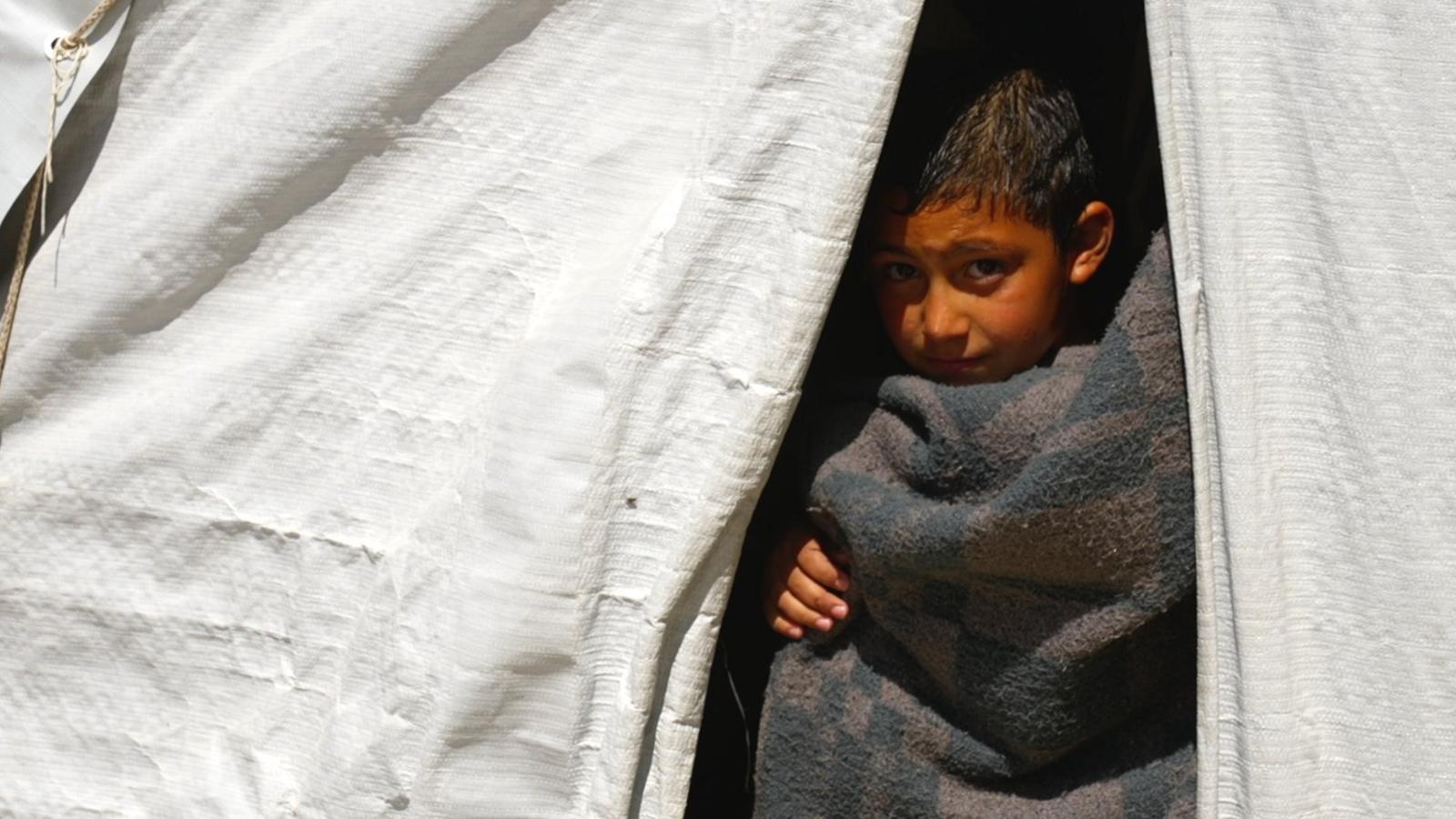Syria's Assad tells Arab leaders to take 'historic opportunity' to remake Middle East
- Published
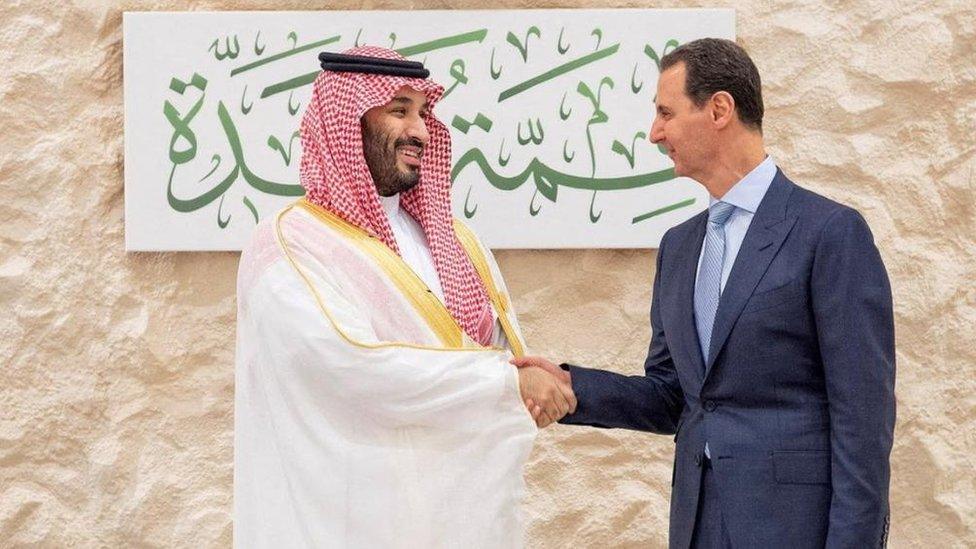
Mr Assad received a warm welcome in Saudi Arabia, which had backed Syrian rebels
Syrian President Bashar al-Assad has spoken of an "historic opportunity" for Arab states to remake their region "with the least amount of foreign interference", in his first trip to an Arab League summit in over a decade.
He said Arab leaders should build on the reconciliation ahead of the summit.
Syria had been suspended from the group at the start of its civil war in 2011.
It was readmitted after states which had backed the opposition accepted Mr Assad's grip on power was secure.
"I hope that it marks the beginning of a new phase of Arab action for solidarity among us, for peace in our region, development and prosperity instead of war and destruction," he told delegates.
"Today is an historic opportunity to rearrange our affairs with the least amount of foreign interference," he added.
Meanwhile Ukrainian President Volodymyr Zelensky, who was also invited to the summit, accused some Arab leaders of wilfully ignoring to Russia's invasion. Syria is the only Arab League nation to have openly supported Russia's war.
"Unfortunately, there are some in the world and here among you who turn a blind eye to those [prisoner of war] cages and illegal annexations," he told delegates.
Mr Assad's appearance had been highly anticipated since he was invited by Saudi Arabia to attend only last week.
He was given a warm welcome, receiving a hug from his Saudi host, Crown Prince Mohammed bin Salman. Saudi Arabia had for years supported rebel groups fighting to overthrow President Assad, with money and arms. However this was reduced as jihadist groups became more powerful and Mr Assad crushed the rebels following Russia's intervention in 2015.
At a meeting of the foreign ministers of the 22 member states on Wednesday, Arab League Secretary General Ahmed Aboul Gheit declared that he hoped that "Syria's regaining of its seat is a precursor to the end of its conflict".
But not every country was enthusiastic about Syria's reinstatement.
Qatar's foreign minister told a news conference in Doha that it had dropped its opposition only because it did not want to "deviate from the Arab consensus".
The US meanwhile said it did "not believe that Syria merits readmission".
"Our position is clear - we are not going to normalise relations with the Assad regime, and we certainly don't support others doing that as well," state department spokesman Vedant Patel told reporters.
Syria's return to the Arab League has also been denounced by ordinary citizens opposed to the government.
"How many people were killed? How many people were imprisoned? How many people were tortured to death?" teacher and activist Abdulkafi Alhamdo, who was forced to flee his home in the Syrian city of Aleppo, told the BBC's Newshour programme.
"What happened - by allowing Assad to join this Arab League meeting - is unbelievable and cannot be forgiven by the next generations."
There has been a growing rapprochement between Arab states and Syria, which accelerated following the devastating earthquake that hit Turkey and north-western Syria in February. In the wake of the disaster once-hostile powers sent humanitarian aid to Syrian government-controlled areas.
China also brokered a surprise agreement in March that saw Saudi Arabia restore diplomatic ties with its long-time regional rival Iran, which along with Russia has helped Mr Assad's forces regain control of Syria's biggest cities.
Large parts of the country are nevertheless still held by Turkish-backed rebels, jihadists, and Kurdish-led militia fighters supported by the United States.
About half a million people have been killed in the war and half of Syria's pre-war population of 22 million have had to flee their homes. Some 6.8 million people are internally displaced, while another 6 million are refugees or asylum-seekers abroad.
Even before the earthquake struck an estimated 15.3 million people inside Syria were in need of some form of humanitarian assistance - an all-time high since the war began.
Related topics
- Published18 May 2023
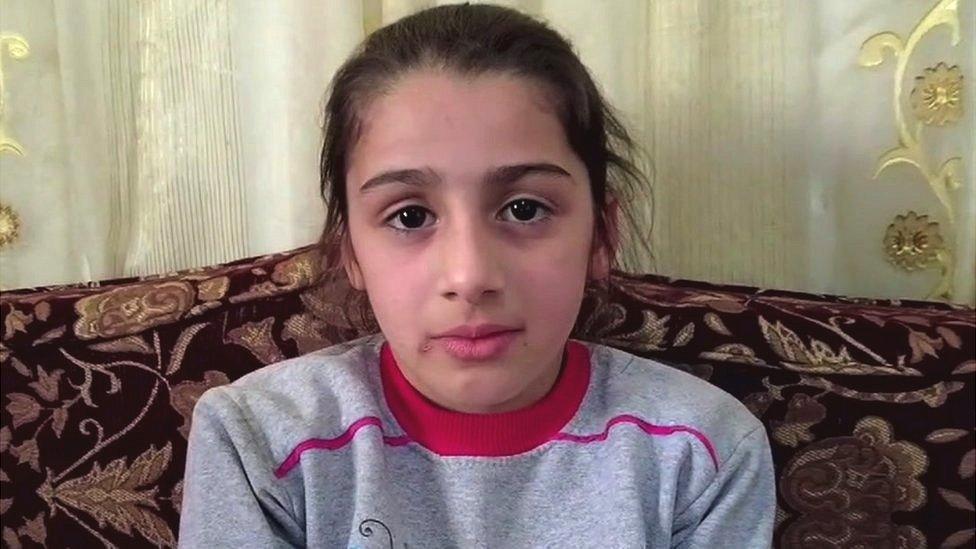
- Published7 May 2023
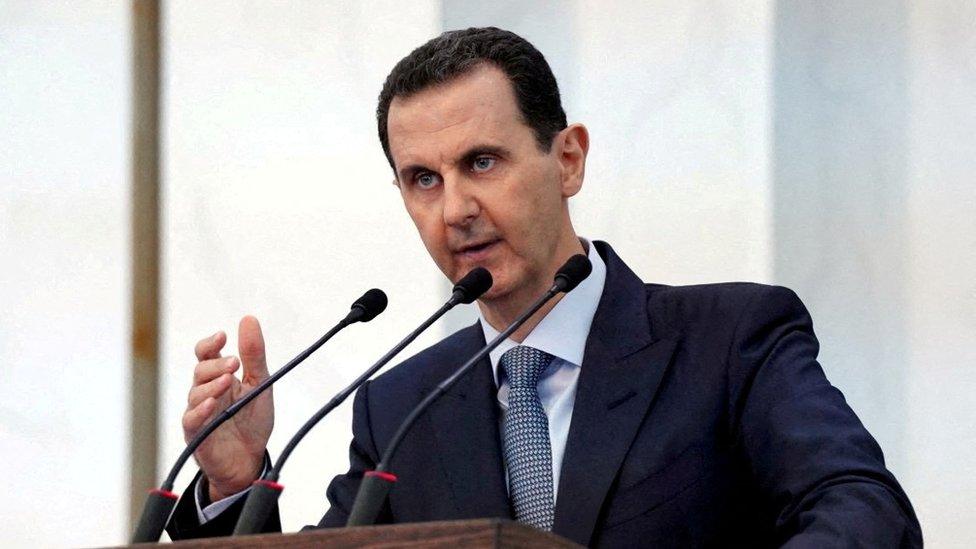
- Published3 May 2023
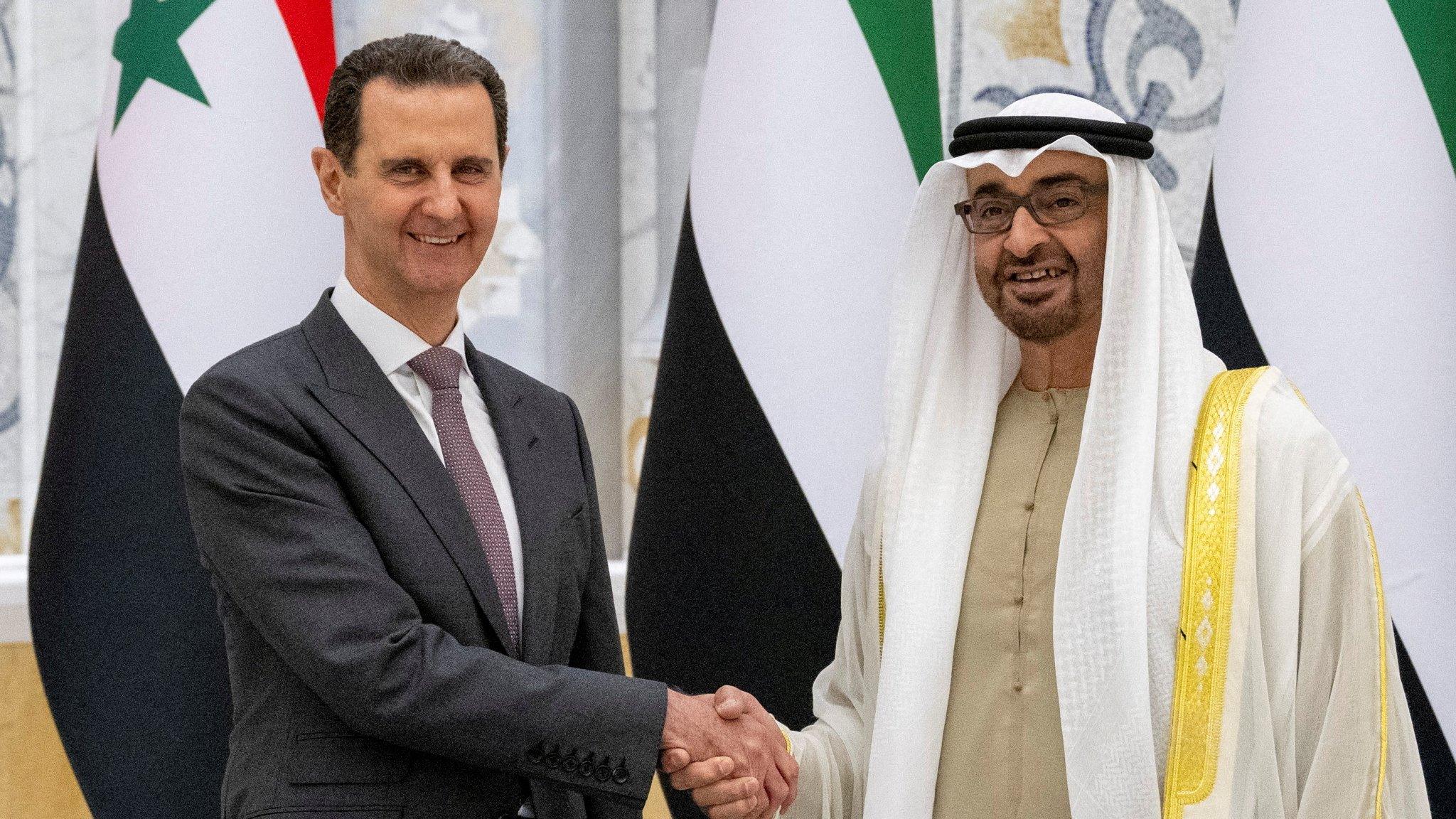
- Published21 April 2023
